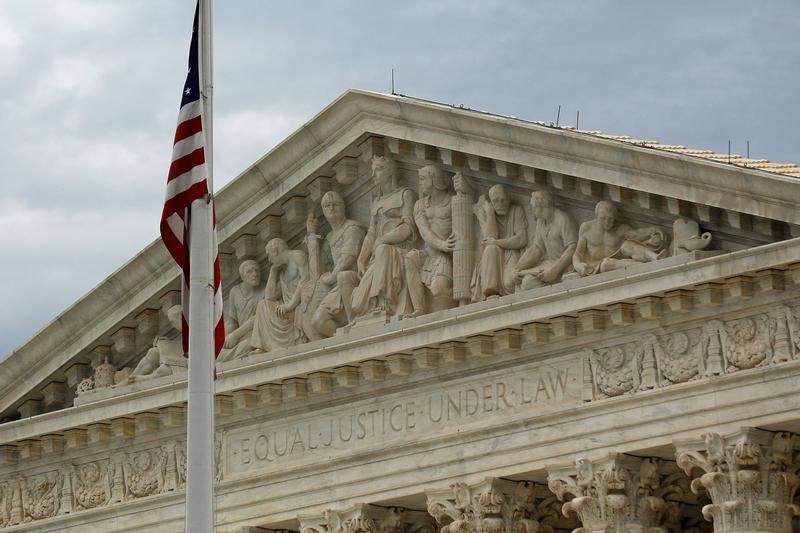By Lawrence Hurley and Nick Brown
WASHINGTON/SAN JUAN (Reuters) - The U.S. Supreme Court on Friday agreed to hear Puerto Rico's bid to reinstate a law that would allow restructuring of the debt-burdened U.S. territory's public agencies.
In a major boon for a U.S. commonwealth facing some $72 billion in debt, Puerto Rico will get a chance to argue before the top U.S. court that its proposed restructuring law, invalidated by courts earlier this year, is its best chance to pull itself out of a nearly decade-long recession.
The Supreme Court will decide whether a 2014 law known as the Recovery Act conflicts with U.S. federal bankruptcy law. The court also took up a companion case filed by representatives of the publicly owned Government Development Bank (GDB) for Puerto Rico.
"We are pleased with (the) Supreme Court's decision," said GDB President Melba Acosta. "The Recovery Act was designed to provide a structured process for Puerto Rico's government entities and their creditors to restructure the debt of those entities in an orderly fashion."
Puerto Rico's creditors have argued that a bankruptcy mechanism would give the Caribbean island an unfair legal authority to impose deep repayment cuts.
The case goes to the heart of Puerto Rico's efforts to restructure the $72 billion in total debt, which Governor Alejandro Garcia Padilla has called "unpayable," calling for concessions from creditors.
As a U.S. territory, the island is excluded from statutes that allow U.S. states to put cities, towns and agencies into bankruptcy. Puerto Rico passed the Recovery Act seeking similar authority to put into bankruptcy agencies holding a combined $20 billion of the island's debt.
The creditors that first challenged the law, including mutual fund giants Franklin Advisers and OppenheimerFunds, said the measure contravened the U.S. bankruptcy code even though the code excludes Puerto Rico.
A U.S. federal court in Puerto Rico nixed the law in February, and a U.S. appeals court affirmed the decision in July.
If the Supreme Court reverses and rules for Puerto Rico, the territory could place into bankruptcy agencies like the Puerto Rico Electric Power Authority (PREPA), which faces more than $8 billion of debt, and the Puerto Rico Highways & Transportation Authority (PRHTA), with about $4.6 billion of debt.
The court will hear oral arguments in the spring, with a ruling due by the end of June.
ALITO RECUSED
Justice Samuel Alito will not participate, meaning only eight justices will hear the case. Alito's most recent financial disclosure statement showed he has invested in two Franklin funds that, according to Franklin's website, have assets in Puerto Rican municipal bonds.
With debt restructuring talks ongoing throughout the island, it was not clear whether Puerto Rico would utilize a bankruptcy statute, but the threat of one could give the territory leverage in the discussions.
The case is one of several paths Puerto Rico is taking to gain access to bankruptcy laws. The territory's U.S. congressional representative has introduced a bill to give the island the same bankruptcy access as other states, while the U.S. Treasury has supported giving Puerto Rico itself the right to file bankruptcy.
Nicholos Venditti, a portfolio manager at Thornburg Investment Management, said the Supreme Court's decision to hear the case would negatively impact Puerto Rico bond prices.
"When the law was initially ruled unconstitutional, bondholders looked at that as a kind of big win for them," Venditti said.
Now that the Supreme Court has taken the case, Venditti added, "If I'm Puerto Rico, I'm looking at this as kind of a big win."
Stephen Spencer, an adviser to some of the law's challengers, declined to comment on Friday. Barbara Morgan, a spokeswoman for the governor's office, had no immediate comment.

In U.S. congressional testimony earlier in the week, Spencer said bankruptcy would be "a bailout of Puerto Rican municipal corporations on the backs of hundreds of thousands" of investors.